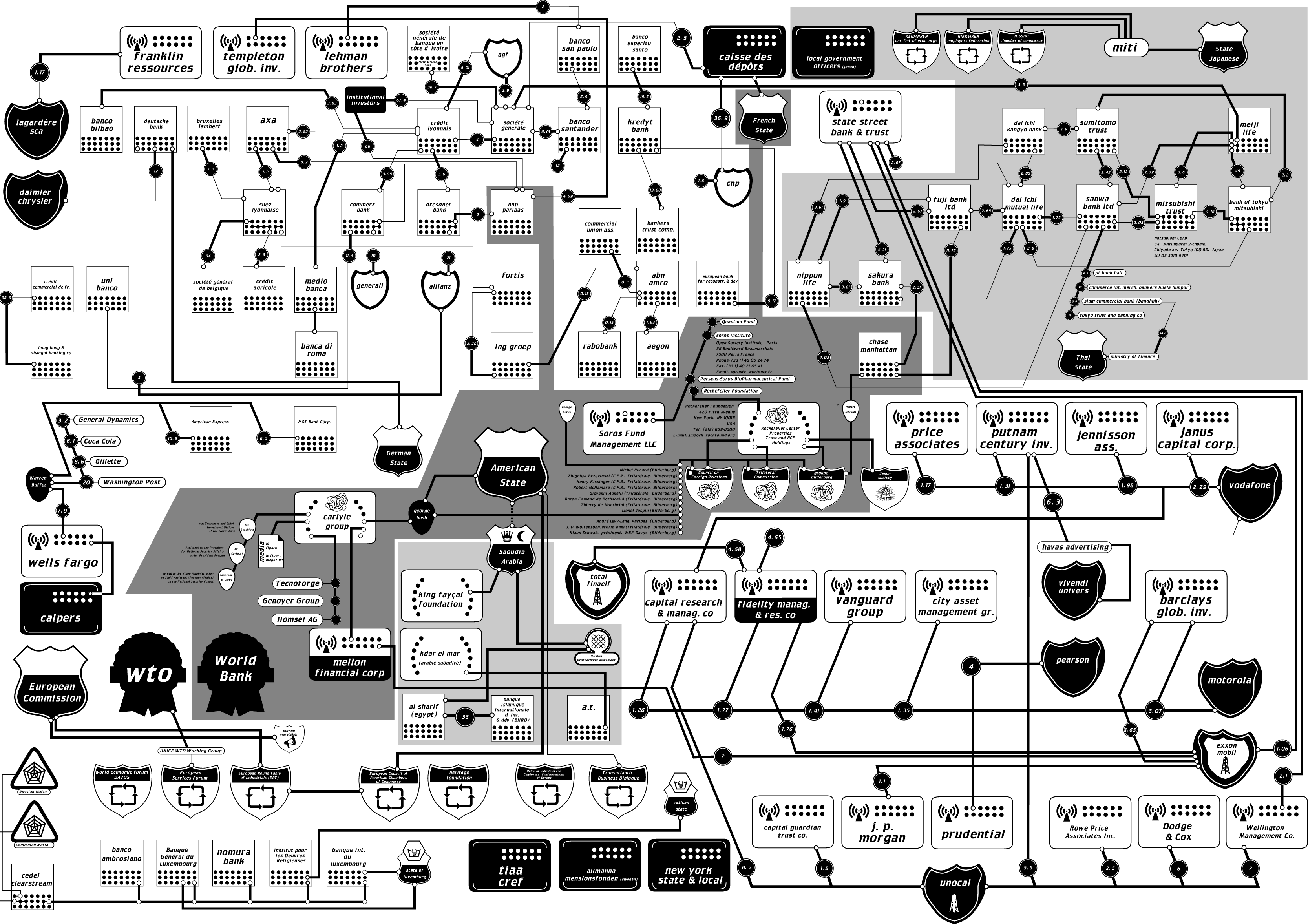|
|
|
|
| . |
| . |
| |
 |
| |
| index > cartes / maps
> |
| |
| chroniques de guerre
2 / wartime chronicles
2 |
| |
| Bureau d'études, 2001 |
| |
pole of control over world financial flows:
banks, private and public pension funds, transnational firms, elite leadership bodies,
investment companies, lobbies, states, mafia networks, off-shore financial zones,
international public organizations...
note 1 - The Transatlantic
Business Dialogue is one of the major world lobbies, a non-democratic organization
seeking "to boost transatlantic trade and investment
opportunities through the removal of barriers – including costly inefficiencies caused
by excessive regulation, duplication and differences in the EU and U.S. regulatory
systems and procedures... The TABD entirely supports the rules and principles of
the World Trade Organization" (TABD, April 2000). According to Jérôme
Monod,
copresident of the Transatlantic Business Dialogue (1999), governments accept almost
50% of the proposals made by the TABD.
note 2 - For international exchanges only two clearing houses exist. One is called
Euroclear (Brussels), and the other CEDEL (Luxembourg). Since 1999, CEDEL
has changed names and is called Clearstream. According to Conor Leason, the communications
officer of Euroclear, an average of approximately 60, 70 or 80,000
transactions are processed by the company every day, for a total daily value of 180
billion euros.
note 3 - The right to vote in the IMF is proportional to the economic might of the
participating countries. The United States therefore has the majority. To the contrary,
all the African countries have only 3% of the votes between them, the equivalent
of Belgium. If a country does not meet IMF criteria, not only does the organization
refuse any loans, but no other lending organization (World Bank or private banks)
will trust the country and therefore none will loan money. The IMF calls its policies
"structural adjustment" or "stabilization." |
| |
|

|
| |
| index > cartes / maps
> |
| |
|
|
|
|
|